Best Small Business Accounting Software For Your Business In 2023
We're here to help you to find your business's best Small Business Accounting software. Do you want to get a free consultation to find the perfect Small Business Accounting software? Connect with us now and compare all verified user reviews, features, pricing, and more.
List of 25 Best Small Business Accounting Software
_mid.png?auto=compress,format)
Software by Tally Solutions Pvt Ltd
Use the advanced and automated accounting solution by downloading TallyPrime. This inventory management and integrated business management software makes your accounting operations error-free & efficient. The customized version of this accounting solution is al... Read more
Starting Price: Available on Request
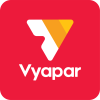
Software by Vyapar Tech Solutions
Experience the convenience of managing invoice and billing processes through Vyapar software. Strengthen the billing system of your SME with this easy to use accounting software. It is beneficial for smooth GST billing operations. Read more
Starting Price: Available on Request
"Best billing, accounting, user management and Inventory management app. They added user management on request" - Yashwant

Software by Zoho Corporation
Manage your finances with ease by using Zoho Books, the best online accounting software. This software automates business processes and makes inventory management hassle-free. Invest in this modern accounting solution to empower team members. Read more
Starting Price: Available on Request

Software by Merrchant
Merrchant's portal covers every application, from accounting, invoices, bills, payroll management, the point of sale, Bank account reconciliations, e-mail, HRM, CRM, purchase orders, quotations, customer management and everything else. Read more
Starting Price: Available on Request
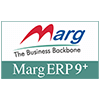
Software by Marg ERP Ltd.
Marg's fastest and advanced, GST Ready Accounting Software for SMEs can manage account payables and receivables efficiently. It generates invoices and reports in 1000s of formats, Auto-Reconcile bank transactions with 140 banks and bring online payment options ... Read more
Starting Price: Available on Request

Software by Horizon Technology Solutions
Simple Billing software with complete inventory and accounts modules. It's fast, reliable and easy to maintain. Ideal for businesses that have a large number of invoices and deals in 100's of SKU's. Typically used by distributors, retailers and small ma... Read more
Starting Price: Available on Request

Software by Hyper Drive Solutions
HDPOS is the best accounting software. It has ease of use and nice interface. It is a Windows based Billing, Inventory Management and Accounting Software and it easly Install on single computer or multiple Terminals. Read more
Starting Price: Available on Request
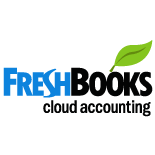
Software by FreshBooks
FreshBooks makes your accounting tasks easy, fast and secure. Start sending invoices, tracking time and capturing expenses in minutes. We uphold a longstanding tradition of providing extraordinary customer service and building a product that helps save yo... Read more
Starting Price: Available on Request
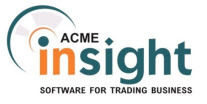
Software by Acme Infovision Systems Pvt. Ltd
Acme Insight is comprehensive software, specifically made for the Retailers, Wholesalers, and Distributors by considering all the complexities of their business. Varied types of useful reports and customer relationship management modules that leads your business gr... Read more
Starting Price: Available on Request
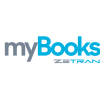
Software by Zetran Corporation
myBooks is an easy-to-use online accounting software for small business owners. This powerful online accounting software helps you manage your finances, save you time and money. Small business owners can create invoices and quotes, manage bills and expens... Read more
Starting Price: Available on Request

Software by Sage
Add the productivity offered by the payroll management and accountancy software, Sage50cloud. This software is a cloud-hosted solution that makes an online payment, digital invoicing, and automated bank reconciliation simplified & more accessible. This software... Read more
Starting Price: Available on Request
_mid.jpg?auto=compress,format)
Software by Wave Accounting Inc.
Wave's accounting tool is 100% free, secure, and accountant-approved. Use Accounting by Wave to connect your bank accounts, sync your expenses and balance your books to ensure you're ready for tax time Read more
Starting Price: Available on Request
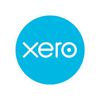
Software by Xero Limited
Xero is award winning web based accounting software for small business owners and their accountant. It is beautifully designed and easy to use online bookkeeping software. Read more
Starting Price: Available on Request
_mid.png?auto=compress,format)
Software by Patriot Software
Our secure online payroll system, paying your employees has never been easier. We’ll help you get started by setting up your payroll, employees, payroll tax information, etc. Read more
Starting Price: Available on Request

Software by Zybra
Easy & Fast GST Accounting Software/Billing Software/Invoicing Software for Small & Medium Businesses. Try the 15 days FREE trial of Zybra. One-click GST Report, Custom GST Invoicing, Automatic GST Calculations, Role based Multiple Access make GST accountin... Read more
Starting Price: Available on Request

Software by Atlanta It Solutions
atACC ERP 19 is one of the finest business solutions out in the market which provide you the total control over your business operation. Software is highly robust and very futuristic in terms of design and performance and also support mobile app integration. Read more
Starting Price: Available on Request

Software by DSO Software
DSO Hotel 8.0 which covers all modules Hotels and Restaurants Software with the great reporting system. Easy to use and affordable price. 20% off on multi-users. The free trial for 1 month. Read more
Starting Price: $112.5 Full Licence/ Single-User

Software by Moneypex
Moneypex is accounting software for business owners to manage their business finances from a single HQ. It automates most of your bookkeeping needs to streamline your needs. Startups, contractors and sole traders can use moneypex for their needs. Read more
Starting Price: Available on Request

Software by GSTBlue
Real accounting for non-accountants. Pick our GST ready accounting software at getting all GST reports at one simple click. Gstblue accounting software is a GST ready accounting solution which can be customized even after your purchase at one simple call. Read more
Starting Price: Available on Request

Software by Technix India Solutions
BusinessBook Plus is an online Accounting & Inventory software, It automates general transaction for a business and significantly improves business operations, profitability and saves time for managing complex account books. Read more
Starting Price: Available on Request

Software by Arth Accounting Software
Accounting Software with GST & Inventory Management for Small Businesses in India. Extremely easy, and we mean it literally, even a class 6 student can operate & user-friendly interface loaded with premium features found in a full blown accounting system. Read more
Starting Price: Available on Request

Software by DigiPlusIT
Simple and Easy to use GST Based Accounting App for Growing Businesses. DigiBill helps businesses manager their Customers, Suppliers, Inventory, Expenses and multiple businesses all through simple DigiBill App. Read more
Starting Price: Available on Request

Software by ACES Force Solutions India Pvt Ltd
GST and EwayBill compliant Billing and Accounting Software. Blossom is a GST-ready Billing software that lets you create and send Invoices, Track Inventory, Financial Management, Generate reports, and file GST returns easily. Read more
Starting Price: $7.64 Per Month

Software by Infosign Technologies
iLedger is a Cloud Based Accounting software and is free from IT maintenance and backups. It supports GST and Inventory accounting. It is a light weight Web software that can be accessed from anywhere. Read more
Starting Price: $10.4 Organisation/Month Billed Annually
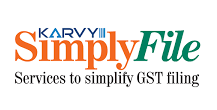
Software by Karvy
Karvy acts as a bridge between the GSTN systems and the taxpayers. It interfaces are easy to use and are made available at the disposal of the taxpayers to simplify their compliances in terms of registrations, returns, payments, refunds and other compliance process... Read more
Starting Price: $0 Per Month
Small business owners and startups have to be extra careful during their initial years when it comes to finance. Online accounting software helps them keep track of accounts receivable and accounts payable their overheads, gives them a clear view of their profits and is ready for the tax season.
Ideally, small businesses should have online accounting software that is aligned with modern-day needs, is hyper-customizable and scalable to meet their particular and dynamic needs. Then with time, as the business grows and the accounting becomes more complex, a custom enterprise resource planning (ERP) system is required.
Best Small Business Accounting Software:
1. QuickBooks
QuickBooks online ranks at the top as one of the most preferred small business accounting software. This online accounting software offers endless online training resources and forums to get help when needed, which makes it easy to use and super-helpful. The best thing -- all accounting and bookkeeping features can be accessed from a single dashboard, making the entire auditing and bookkeeping process seamless.
Pros
-
Projects profitability
-
New cash flow pages
-
New hybrid sales tax option
Cons
-
Not cost-effective
-
Auto-categorization is not very accurate
-
Mobile apps lack efficiency
2. FreshBooks
Invoicing is one of the most important accounting features for every business. FreshBooks is exceptional at creating and sharing automated invoices, as its key feature is to send, receive, print, and pay invoices. However, it also takes care of the basic bookkeeping needs of small businesses. They provide a balance sheet template that is easy to use. Moreover, this cloud-based auditing software makes third-party integration seamless.
Pros
- Double-entry accounting
- Automatic mileage tracking on iOS
Cons
- Hardly any setup help
- Some dashboard deficits
- Mobile apps lack some site features
3. Xero
Xero is well-suited for micro-businesses whose bookkeeping needs aren't complex since it offers simple accounting and bookkeeping features. This online auditing software has a neat interface and also easily integrates with third-party payroll services.
Businesses can receive online payment from customers through Xero's integration with GoCardless and Stripe.
Pros
- Project tracking
- Integrates with Gusto (payroll)
Cons
- Need a seperate app to handle expenses
- No reorder level in inventory
4. Wave
If you are a service-based small business that needs to send simple invoices and don't require tracking inventory or running payroll, Wave is the ideal accounting software for you. Wave's free features cover all of the accounting and bookkeeping needs of small businesses and freelancers. Additionally, Wave offers multi-currency support.
Pros
- Free (payments and payroll incur fees)
- Double-entry accounting
Cons
- No dedicated time-tracking features
- Receipts by Wave app unavailable on Android
5. Sage
Sage 50cloud is comprehensive small business accounting software. It houses comprehensive financial tools and offers a multitude of customization options. In addition, its integration with Microsoft 365 makes it a hybrid solution: local, hard-drive-based software that can share data with applications on-cloud.
Pros
- Elaborate and sophisticated features
- Scalable
- Microsoft 365 integration
Cons
- Windows only
- No dedicated time tracking
- Many links open new windows
6. GoDaddy Bookkeeping
GoDaddy is the go-to choice for entrepreneurs as this online accounting software directly integrates with Amazon, eBay, and Etsy. Its general bookkeeping and accounting features are. It is fairly scalable and easy to use. However, it falls short on offering functionalities that its competitors like FreshBooks does.
Pros
- Calculates estimates for quarterly taxes
- Cost-effective
Cons
- No project tracking or bill payment features
- Very little client information in records
7. Kashoo
Another great online accounting and bookkeeping software for micro-businesses is Kashoo. It has simple yet powerful features like income and expense management, usability, and great customer support. It's a simple, go-to choice for small businesses, freelancers, and startups that don't need time-billing or product inventory-tracking tools.
Pros
- Free email, phone, and chat support
- Integrates with SurePayroll
Cons
- Doesn't have an Android app
8. Sunrise
Sunrise has similar features to that Kashoo. Due to its simplicity and limited features, it is greatly useful for freelancers and sole proprietors. They can track income and expenses and also send invoices to customers. Small business accounting software needs double-entry accounting and can do without time tracking, detailed analytical reports, and a comprehensive mobile app.
Pros
- Free
- Supports both quotes and estimates
- Double-entry accounting
Cons
- Dedicated time or project tracking features are unavailable
- Less details in fields of contact and product records
9. AccountEdge Pro
AccountEdge Pro offers double-entry accounting tools — from time billing and reporting to inventory. The software is easily customizable for particular business needs. In addition, it can be optimized for desktop users. The software is also available for a one-time fee, potentially saving you a lot of money down the line by avoiding subscription costs. It also has a cloud collaboration option.
Pros
- Double-entry accounting
- Customizable
Cons
- No mobile app
10. OneUp
OneUp Best for businesses focused on inventory management. This online accounting and bookkeeping software automatically adjusts your inventory levels as they shift and tells you the right time to reorder.
Moreover, it syncs with your bank, categorizes bank entries, and validates suggested entries, so your books are done accurately in no time.
Pros
- Best inventory management
- Double-entry accounting
- Good Automation
Cons
- Customer support can't be better
11. Tipalti
Tipalti automates the accounts payable process. It can streamline international payment processing, automate your payment operations, and even make sure you're tax compliant across 190 countries.
Tipalti is an online accounting software best used for deadline-driven businesses as it can help you keep an eye on and meet time-bound payment objectives every time. This software fixes issues like late payments, non-compliance, and administrative overload.
Pros
- Works across 190 countries
Cons
- Less Intuitive User-interface
12. OnPay
OnPay is a payroll-centric solution for small businesses. It can help you enter payment data, automate tax filings, and manage benefits, including health insurance, compensation insurance, and 401(k). It also gives unlimited payroll runs for W-2 and 1099 workers.
Furthermore, it can estimate your payroll taxes, manage tax form filings, and even pay your taxes. One outstanding feature is they'll also take responsibility for any tax filing errors committed while using the product.
Pros
- Loaded with features
- Intuitive
Cons
- Setting up PTO/vacation/sick policies could be clearer
13. DEAR Systems
DEAR Systems stands for double-entry accounting record. They offer a unified platform to cover various accounting and bookkeeping services that can help any SMBSs and startups streamline processes like data entry and syncing invoices.
This accounting software easily integrates with other applications like Xero and Quickbooks. Moreover, it allows the best real-time visibility into your financial data.
Pros
- Double-entry accounting
- Great customer service
- Intuitive user interface
Cons
- The software might hang sometime
- Need more integration facilities
14. ZarMoney
ZarMoney is comprehensive accounting software with an elaborate list of features. It helps your business enhance and streamline productivity, advanced inventory, and reporting.
It could be the best choice for small business accounting software because of its pricing model. ZarMoney's pricing model operates on a sliding scale that incrementally adjusts with every individual user you need to add at a reasonable price. This structure can work for businesses growing at any rate.
Pros
- Double-entry accounting
- Dynamic pricing
Cons
- No Android app
15. Holded
Holded is the final small business accounting software on our list. It offers accounting, invoicing, project, and inventory features -- among many others. In addition, it connects with your bank, automatically classifies entries, and manages all of them in your ledger.
Its features partially covering invoicing, accounting, payroll, project management, and inventory, make it one of the best accounting software for businesses who are looking for a versatile tool.
Pros
- Feature loaded
- An impressive list of integrations
Cons
- Customer service could be better
Conclusion
We hope you found this blog of actionable value. Though there are several other accounting software in the market, these are the few hand-picked, tried-and-tested by our editors to give you unbiased information on the best account and bookkeeping tools and their functionalities.
Even if you do not go with the accounting software mentioned here, you now know what features to look for while choosing the one for your business.

 Buyer's Guide
Buyer's Guide